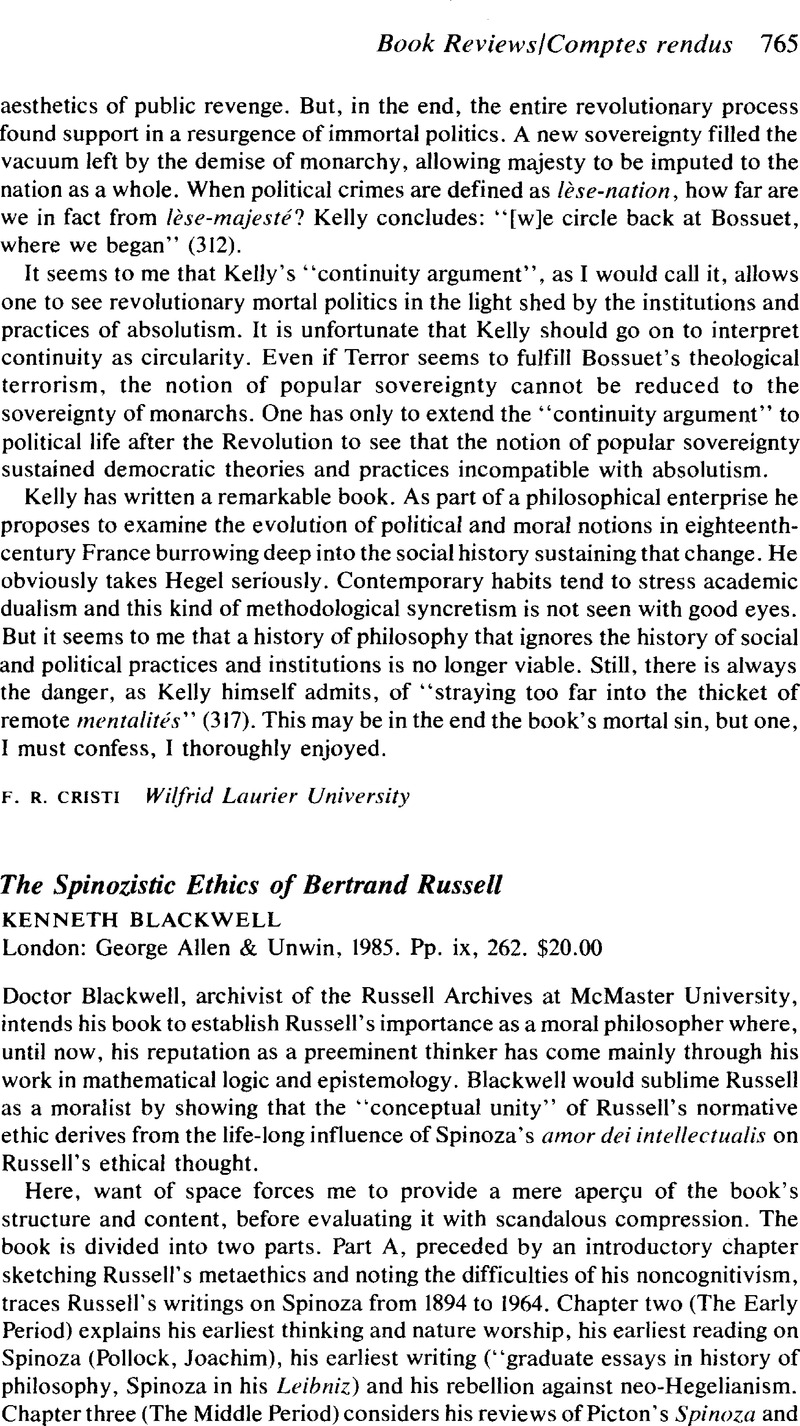No CrossRef data available.
Published online by Cambridge University Press: 13 April 2010

1 These abound, and paralyze the serious reader. To wit: a chapter on the development of impersonal self-enlargement—yet, for most of his life, Russell “held that there is no self” (197); the ethic is universalizable—and it is not; the (narrow) self is enlarged—the not (i.e., infinite)—self is enlarged; the self is a dungeon with hard walls—the self is a “collection of interests and sympathies associated with one person [collection?]” (180–181); Russell's ethic is “organic”—yet he remains an atomist. And on and on.
2 In the Spinoza chapter of Russell's History, where alone he considers a proof of Spinoza's, he writes that the proofs are “in fact, not worth mastering”. Shortly after, claiming that Goethe “admired Spinoza without even beginning to understand him”, Russell uses the proof of E5, Prop. 18 (No one can hate God) to prove that Goethe misunderstands Spinoza. It follows, of course, that Russell's prevailing view is that an understanding of Spinoza, his great source, is “in fact, not worth” getting.